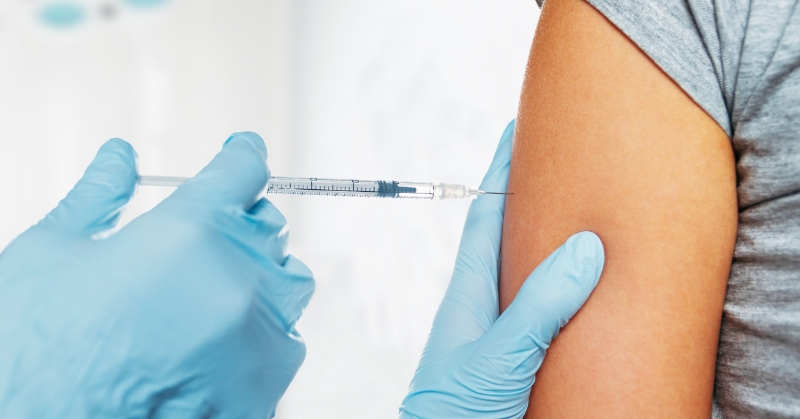
A study funded by the National Institutes of Health has found that among more than 1,800 women planning a pregnancy, those who received at least one dose of a COVID-19 vaccine before getting pregnant were no more likely to miscarry than those who were unvaccinated. Similarly, no increased miscarriage risk was found among roughly 1,500 couples whether the male partner was vaccinated before trying to conceive. The findings provide useful information on vaccination safety for couples planning pregnancy.
The study was conducted by Jennifer J. Yland, Ph.D., Lauren A. Wise, Sc.D., of Boston University, and colleagues. It appears in Human Reproduction. Funding was provided by NIH’s Eunice Kennedy Shriver National Institute of Child Health and Human Development and National Institute of Allergy and Infectious Diseases.
Background
Pregnant women are at higher risk for severe COVID-19 and the accompanying need for hospitalization, intensive care, or needing a ventilator to help them breathe. They are also at higher risk for preterm birth, miscarriage, and stillbirth. Studies have shown that COVID-19 vaccination is effective at reducing severe infection with SARS-CoV-2 and decreasing the chances of hospitalization. Several studies have demonstrated that COVID-19 vaccination early in pregnancy is not associated with a higher risk of miscarriage. Still, many are concerned that the vaccine may raise the risk of miscarriage.
According to the study authors, no previous studies have looked at whether there may be a higher risk for miscarriage after COVID-19 vaccination before pregnancy or whether vaccination of the male partner may increase miscarriage risk.
For the current study, researchers analyzed a database containing health information from more than 1,800 participants in the United States and Canada who were trying to achieve pregnancy when they entered the study. Participants completed an online questionnaire at enrollment and follow-up questionnaires every 8 weeks until they had achieved pregnancy or stopped trying to conceive. When they enrolled, participants also indicated whether they had been vaccinated for COVID-19, along with the dates they were vaccinated. Participants aged 21 to 45 years who conceived submitted questionnaires on their health at 9 and 32 weeks of pregnancy. Roughly 1,500 participants completed questionnaires containing information on whether their male partners had been vaccinated.
Results
Among the participants, 75% received at least one dose of a COVID-19 vaccine before conception and 25% were unvaccinated. Roughly 25% of participants had miscarriages. Vaccinated women were no more likely to have had a miscarriage than those who were unvaccinated. Among those who had miscarriages, 26.6% were unvaccinated, 23.9% had one dose of a two-dose vaccine before conception, and 24.5% who had both doses of a two-dose vaccine before conception.
Of the roughly 1,500 couples with data on male partner vaccination, 22.5% resulted in miscarriage. For couples in which the male received at least one dose of a vaccine, 23% of pregnancies ended in miscarriage. For couples in which the male was unvaccinated, 21.1% resulted in miscarriage—a difference that was not statistically meaningful.
Significance
The authors concluded that their study found no link between COVID-19 vaccination before conception and miscarriage. They added that this information may be helpful for couples planning a pregnancy.
Reference
Yland JJ, et al. A prospective cohort study of preconception COVID-19 vaccination and miscarriage. Human Reproduction. 2023.

 BACK TO TOP
BACK TO TOP